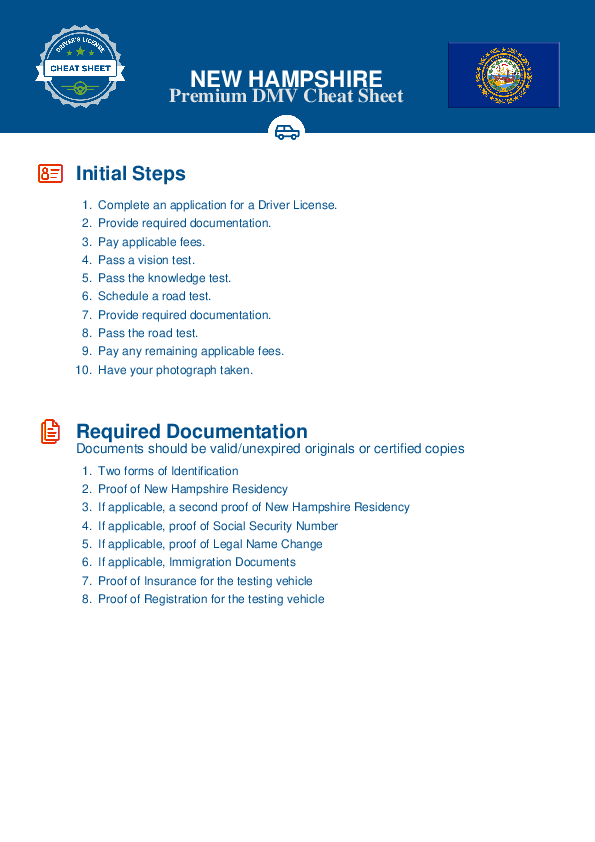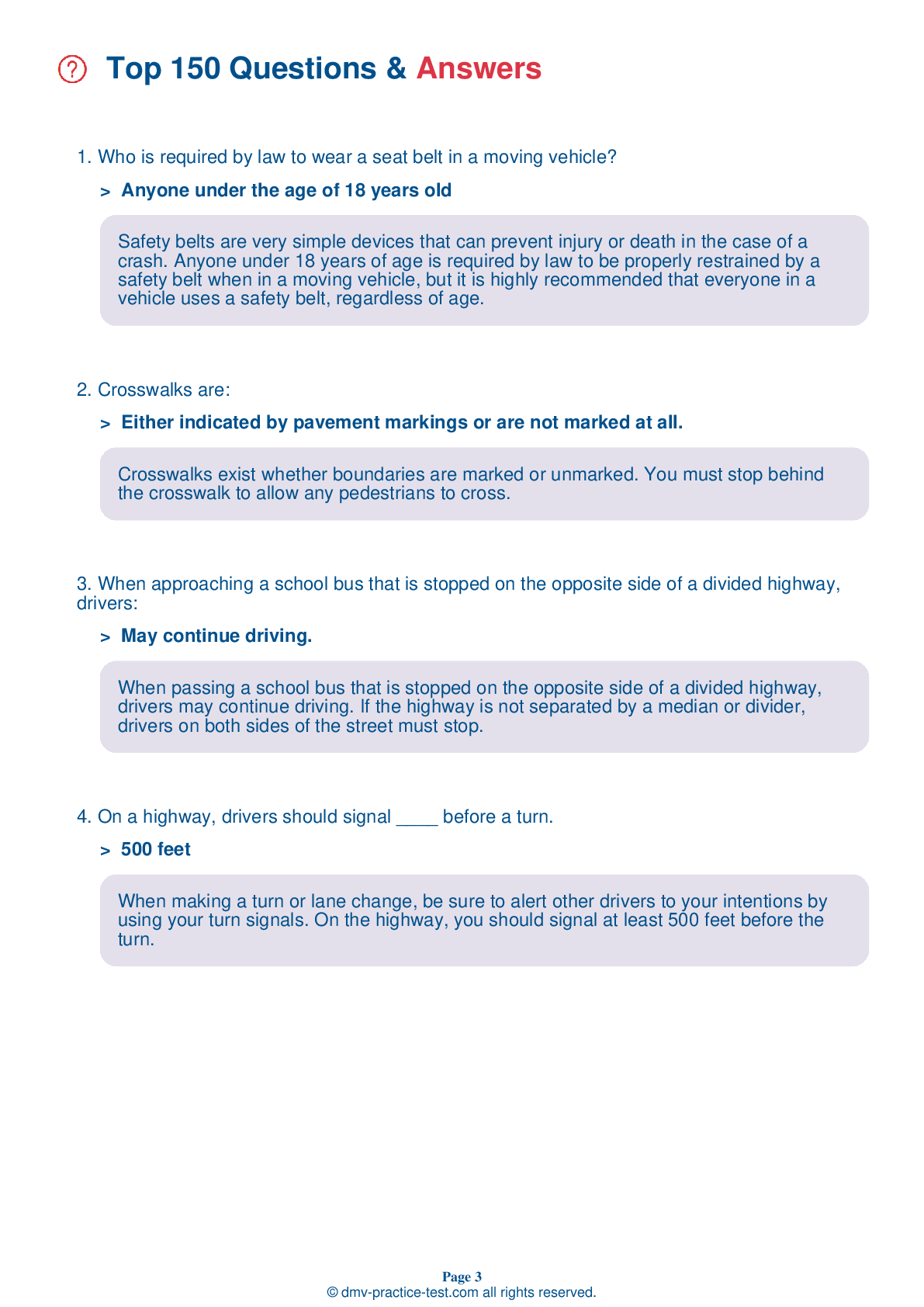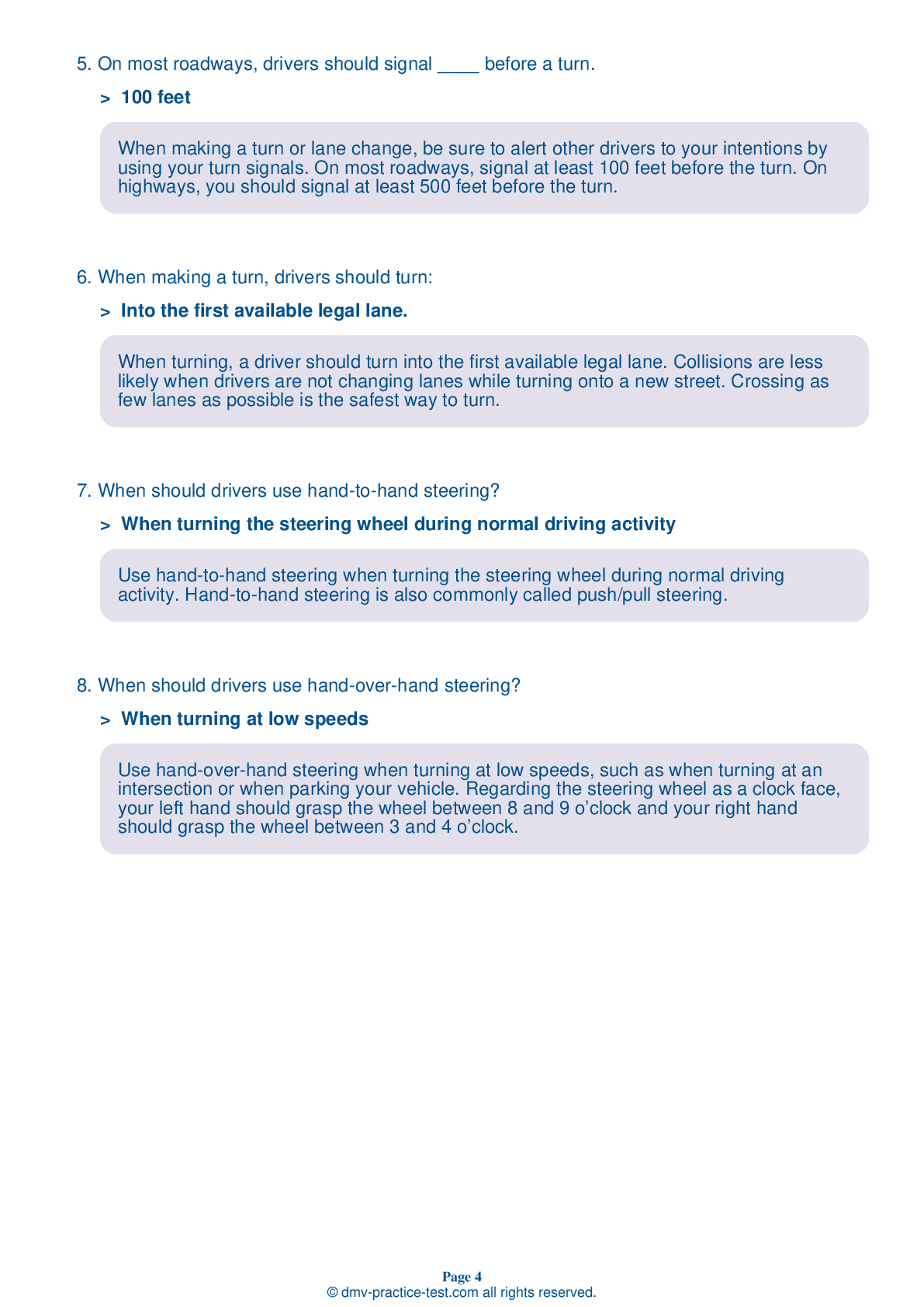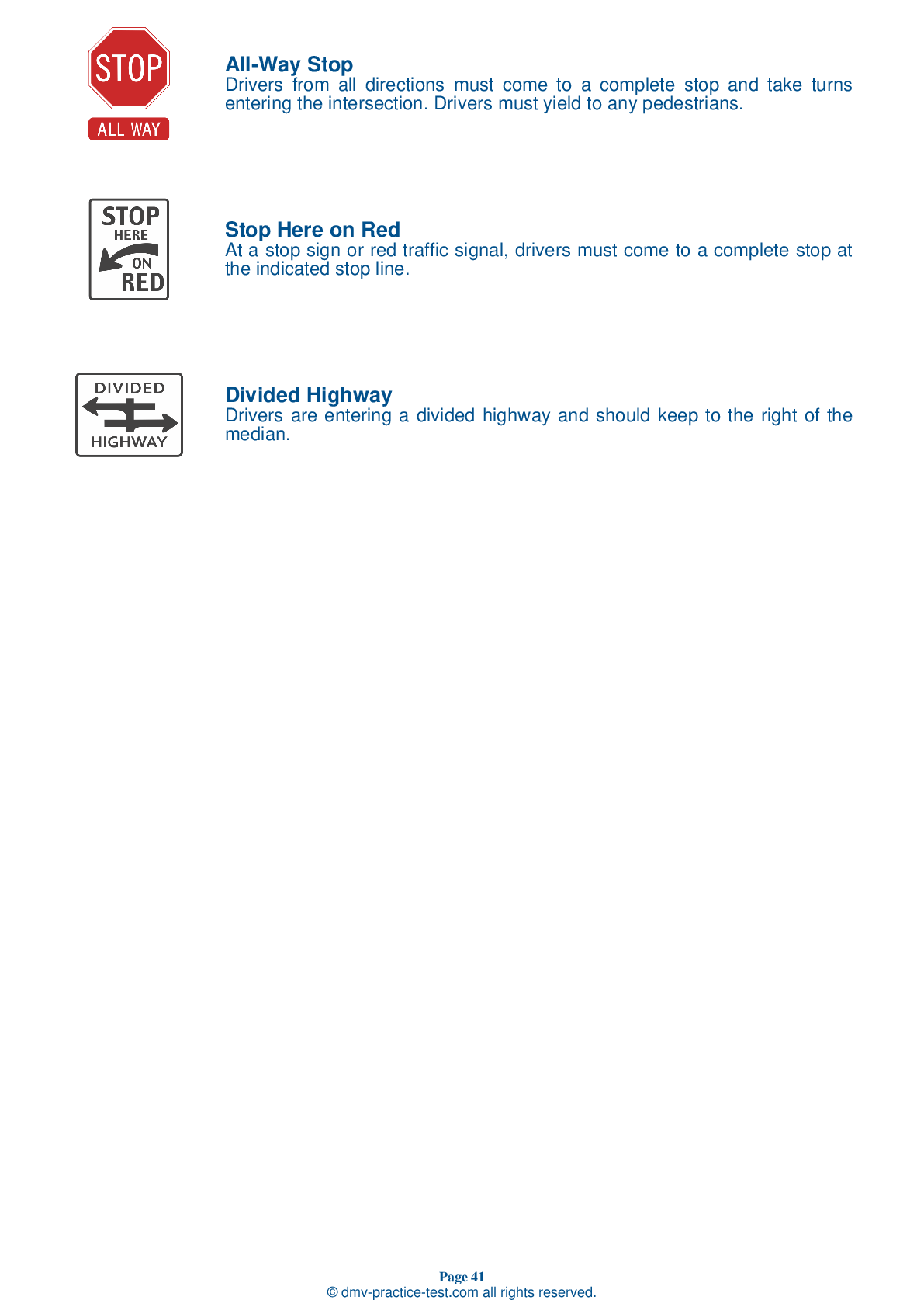FREE New Hampshire DMV Practice Test #13 Page 3 of 5
The DMV practise exams in New Hampshire have been updated for January 2026. It includes questions based on the most important traffic signals and legislation in the New Hampshire Driver Handbook for 2026. To study for the DMV driving permit test and driver's licence exam, use actual questions that are very similar (often identical!) to the DMV driving permit test and driver's licence exam.
Each question on the practise exam has a tip and explanation to help you recall the ideas. Questions about traffic rules, traffic signs, and driving statutes, as well as knowledge from the Driver Handbook, will be included in the written portion of the official New Hampshire DMV test.
You must properly answer 32 of the 40 questions to receive a passing mark. Take this New Hampshire DMV practise exam to help you prepare for your instruction permit or driver's licence.
The DMV exam is offered in a variety of languages.
Using any form of testing help will result in an automatic fail, and the DMV may take further action against your driver's licence, so avoid it.
17 . A work zone:
Work zones are often stationary, but they may also be present in the form of moving vehicles striping lines, mowing, or removing snow. Work zones are marked by orange signs with black lettering or symbols. Slow down and pay extra attention when approaching or driving through a work zone.
18 . This road sign means:
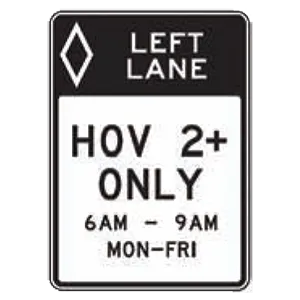
This sign marks a high occupancy vehicle (HOV) lane. HOV lanes are reserved for use by buses and vehicles with a driver and one or more passengers, as indicated on the sign.
19 . Which of the following about winter driving is not true?
You should not use cruise control on snow, in rain, in fog, or under similar hazardous conditions. Winter is the most difficult driving season and requires extra caution from drivers. It is important to consistently check your antifreeze and windshield washer fluid levels. Using snow tires can increase a vehicle's traction on the surface of slippery roads.
20 . When encountering an aggressive driver, you should:
If another driver is threatening you or intentionally driving dangerously around you, remain calm and try to put as much distance between the two of you as possible. Slow down and let them pass. Do not make eye contact and do not make obscene gestures.
21 . ____ limit your concentration, perception, judgment, and memory.
Even the smallest amount of alcohol will reduce your concentration, perception, judgment and memory, and your driving skills will suffer. No one can drink and drive safely.
22 . When passing a large vehicle, the driver of a small vehicle must be prepared for:
Large vehicles can cause wind gusts with a force great enough to cause direction changes in smaller vehicles. Drivers of small vehicles should be prepared to take proper corrective steering action when approaching or passing large vehicles that are moving at or near maximum speeds.
23 . When you see other drivers around you acting or reacting in anger:
When other drivers are behaving angrily, you should take action to physically and mentally distance yourself from the situation. Avoid making eye contact with them, or making body movements or gestures that could provoke them. Slow down, move over, or do whatever you safely can to put yourself out of danger.
24 . You may avoid the risks of alcohol-related crashes by:
The only way to avoid the risks of drinking and driving is to decide before you start drinking that you are not going to drive. Because alcohol affects your judgement, it will be harder for you to make safe decisions after you have started drinking.
Need Car Insurance? No problem!
Compare the best rates in New Hampshire and find a personalized policy that meets your needs.
1. Are You Currently insured ?
2. Married ?
3. Do you own your Home?
4. Do you have more than 1 car ?
5. Have you or a Family Member Honorably Served in U.S. Military ?
6. Your Name
7. Age
8. Zip code
IMPORTANT REMINDER:Auto Insurance is Mandatory to drive in New Hampshire. Get covered before you hit the road to avoid any fines.
Ranked by best match
